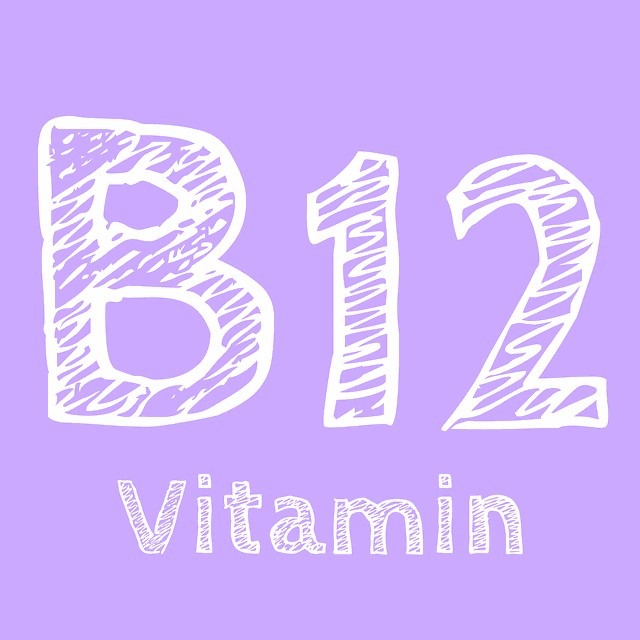Vitamin B12, also known as cobalamin, is a crucial water-soluble vitamin that plays a pivotal role in various physiological processes within the human body. As a member of the B-vitamin complex, B12 is essential for maintaining optimal health and well-being. This article aims to provide a comprehensive overview of the health benefits associated with vitamin B12, emphasizing its significance in pharmaceutical contexts.
Vitamin B12 health benefits
1. Red Blood Cell Formation and Anemia Prevention
Vitamin B12 is crucial for the production of red blood cells (RBCs) in the bone marrow. It plays a pivotal role in DNA synthesis during RBC formation, preventing the occurrence of megaloblastic anemia, a condition characterized by the production of large and immature RBCs. In a pharmaceutical context, understanding the role of vitamin B12 in hematopoiesis is essential for addressing anemia-related conditions.
2. Vitamin B12 helps reduce the risk of Macular Degeneration
This condition is an eye disease that most of all affects your central vision. However, there are some findings that if you maintain adequate levels of vitamin B12, that could help prevent the risk of Macular Degeneration.
According to research, if you supplement daily with vitamin B12, that can lower homocysteine, a type of amino acid that is found in your bloodstream. This is important because in some studies, it was found that elevated homocysteine levels could be associated with an increased risk of age-related macular degeneration.
3. Vitamin B12 could improve mood and symptoms of depression
Vitamin B12 is essential for synthesizing and metabolizing serotonin, which is a chemical responsible for regulating mood. Furthermore, if you suffer from vitamin B12 deficiency, that may lead to decreased serotonin production and cause depression.
According to studies, supplementing with vitamin B12 can improve symptoms of depression in people who are deficient in this micronutrient. However, research does not currently say if this vitamin could have the same effect in those with normal B12 levels.
4. Vitamin B12 may benefit brain activity by preventing the loss of neurons
According to research, Vitamin B12 deficiency has been linked to memory loss, especially in older people. The vitamin could potentially help prevent brain atrophy, which is the loss of neurons in that area and is often associated with memory loss or dementia. In a regulated study of people with early-stage dementia, it was found that a combination of vitamin B12 and omega-3 fatty acid supplements slowed the process of mental decline.
5. Vitamin B12 can help boost Cellular Metabolism and Energy Production
One of the primary functions of vitamin B12 is its involvement in cellular metabolism. B12 is a cofactor for two key enzymes, methionine synthase and methylmalonyl-CoA mutase, both of which are integral to energy production. Methionine synthase facilitates the conversion of homocysteine to methionine, a process critical for DNA synthesis and repair. On the other hand, methylmalonyl-COA mutase is essential for the breakdown of certain fatty acids and amino acids, contributing to energy generation.
6. Vitamin B12 and Cardiovascular Health Benefits
Elevated levels of homocysteine, a byproduct of amino acid metabolism, are associated with an increased risk of cardiovascular disease. Vitamin B12, in conjunction with other B-vitamins, plays a role in the conversion of homocysteine to methionine. This is why, it contributes to cardiovascular health.
Daily recommended dosage of Vitamin B12
As of a last update in January 2022, the Recommended Dietary Allowance (RDA) for vitamin B12 varies by age and life stage. Vitamin B12 is measured in micrograms (mcg) per day. Here are the general RDAs for vitamin B12:
1. Infants:
– 0-6 months: 0.4 mcg per day
– 7-12 months: 0.5 mcg per day
2. Children:
– 1-3 years: 0.9 mcg per day
– 4-8 years: 1.2 mcg per day
– 9-13 years: 1.8 mcg per day
3. Adolescents and Adults:
– Males and Females 14 years and older: 2.4 mcg per day
4. Pregnant and lactating individuals:
– Pregnant individuals: 2.6 mcg per day
– Lactating individuals: 2.8 mcg per day
It’s important to note that vitamin B12 is primarily found in animal products, so individuals following vegetarian or vegan diets may need to obtain B12 from fortified foods or supplements.
Vitamin B12 is crucial for various bodily functions, including the formation of red blood cells, neurological function, and DNA synthesis. If there are concerns about vitamin B12 intake, especially for individuals with dietary restrictions or absorption issues, it’s advisable to consult with a healthcare professional for personalized recommendations and, if necessary, to discuss the potential need for supplementation.
Vegetarian and Vegan Diets
Vitamin B12 is predominantly found in animal-derived foods, making it a critical concern for individuals adhering to vegetarian or vegan diets. Pharmaceutical professionals should recognize the increased susceptibility of such individuals to B12 deficiency and may consider supplementation or fortified products to ensure adequate intake.
What are the Possible side effects of vitamin B12?.
Vitamin B12 is generally considered safe when taken at recommended levels through food sources or supplements. However, excessive intake of vitamin B12 is rare, as the body usually excretes any excess through urine. Here are some potential side effects and considerations associated with vitamin B12 supplementation:
1. Allergic Reactions
In some rare cases, individuals may experience allergic reactions to vitamin B12 supplements. Symptoms may include itching, swelling, severe dizziness, or difficulty breathing. If any of these symptoms occur, medical attention should be sought immediately.
2. Skin Reactions
High doses of vitamin B12 supplements may cause skin reactions, such as redness or itching.
3. Digestive Issues
Some individuals may experience digestive issues, such as diarrhea or upset stomach, especially when taking high doses of vitamin B12.
4. Interaction with Medications
Vitamin B12 supplements may interact with certain medications, including certain antibiotics and medications used to treat epilepsy. Individuals on medications should consult with a healthcare professional to ensure there are no potential interactions.
5. Hypervitaminosis (Excessive Intake)
While rare, excessive intake of vitamin B12 can lead to hypervitaminosis. This usually occurs when very high doses are taken over an extended period. Symptoms may include numbness, tingling, and other neurological symptoms. High doses of vitamin B12 should only be taken under the supervision of a healthcare professional.
6. Masking of Vitamin B12 Deficiency
Vitamin B12 supplements can mask symptoms of a deficiency of other B vitamins, particularly folate. This is why it’s important to maintain an overall balanced intake of B vitamins.
It’s critical to note that the vast majority of people can safely take vitamin B12 supplements without experiencing adverse effects, especially when taken at recommended levels. If you have concerns about your vitamin B12 status or are considering supplementation, it’s advisable to consult with a healthcare professional for personalized advice based on your individual health needs and circumstances.
Conclusion
Vitamin B12 is a water-soluble vitamin that your body doesn’t create on its own. That is why you have to obtain it through diet or supplements. Vitamin B12 is a multifaceted nutrient with far-reaching implications for human health. Its roles in cellular metabolism, red blood cell formation, neurological health, and cardiovascular well-being underscore its significance in pharmaceutical considerations.
Disclaimer:
As a service to our readers, MVS Pharma GmbH publishing provides access to our library of archived content — in our blog. Please note the date of last review or update on all articles. No content on this site, should ever be used as a substitute for direct medical advice from your doctor or other qualified clinician.



